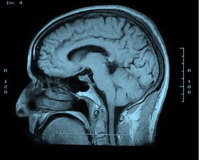Social stigma around dementia hinders diagnosis, care and research

The social stigma which surrounds dementia is impeding early diagnosis, care and research into the disease, according to a new report championed by the Medical Research Council (MRC).
The report, New perspectives and approaches to understanding dementia and stigma, published by the think tank International Longevity Centre UK (ILC-UK) in collaboration with the MRC, Alzheimer’s Research UK, Alzheimer’s Society and supported by the drug company Pfizer, shines a light on the impact the fear around dementia has on those living with the condition, their families and carers, which prevents the research community capturing a full picture of the disease.
According to data in the report, people over the age of 55 fear being diagnosed with dementia more than any other condition and at least 1 in 4 people hide their diagnosis, citing stigma as the reason.
Professor Hugh Perry, Chair of the MRC’s Neuroscience and Mental Health Board, said:
“This report provided a unique opportunity to focus on a little-researched area that has a major impact within society. We wanted to highlight what may not be widely realised - that stigma exists and that the evidence shows it is likely to worsen a person’s symptoms and quality of life through loneliness and rejection. If people are too frightened to address early signs of dementia, we can’t possibly get a full picture of the disease from a research perspective, to understand how the disease first develops and how it varies from person to person. It’s clear that more needs to be done to understand the roots and causes of dementia and stamp out social stigma– the same way that stigma surrounding Cancer and HIV has been all but eradicated.”
Sally-Marie Bamford, Director of Research and Strategy International Centre for Longevity UK (ILC-UK) said:
"The ILC-UK are delighted to be launching this Compendium with the Medical Research Council, Alzheimer's Society and Alzheimer's Research, supported by Pfizer. This piece of work sheds a valuable light on the causes and origins of stigma and dementia and we hope by working together we can start to move forward and help reduce the everyday discrimination and inequalities so many people with dementia and their carers face."
Dr Matthew Norton, Head of Policy at Alzheimer’s Research UK, said:
“We are pleased to have contributed to this report, which sheds light on the stigma that still surrounds dementia and the impact this can have on those affected. Despite the far-reaching effects of dementia on individuals and society as a whole, there is still a lack of public awareness and understanding of the condition. Greater awareness could help lift the stigma that is too often still attached to dementia, and research has a role to play in helping people understand the condition. Dementia is not inevitable, but is caused by diseases, and continued investment in research, such as that from the MRC’s Dementias Platform and Alzheimer’s Research UK’s defeat dementia campaign, is vital if we are to beat those diseases.”
George McNamara, Head of Policy and Public Affairs at Alzheimer’s Society said:
”Too often people with dementia tell us that since their diagnosis they’ve faced an unacceptable level of stigma and in some cases lost friends and social networks. This wouldn’t happen if you had a disease like cancer and is a totally unacceptable, yet avoidable situation that people with dementia have to face.
“We’ve come a long way in terms of raising awareness but we still need to do more as a society to banish the stigma surrounding dementia once and for all. Beating dementia won’t just happen in a lab. By next year 850,000 people in the UK will have dementia. If we’re going to tackle the condition we also need to make the society we live in more dementia friendly. We’re doing this by creating dementia friendly communities that have the know-how to help and recruiting a million Dementia Friends. Work such as this is a key part of the fight against dementia.”
The stigma report is published amid the launch of a new powerhouse for dementia research, established by the MRC. Dementias Platform UK (DPUK) is a £53m collaboration between universities and drug companies that will create the world’s largest study group for the use in dementia research. Using health and lifestyle information from over two million people over the age of 50, as well as data from the lab, the DPUK will focus on improving early detection, treatment and ultimately the prevention of dementia.
The report New perspectives and approaches to understanding dementia and stigma, is available from ilcuk.org.uk

